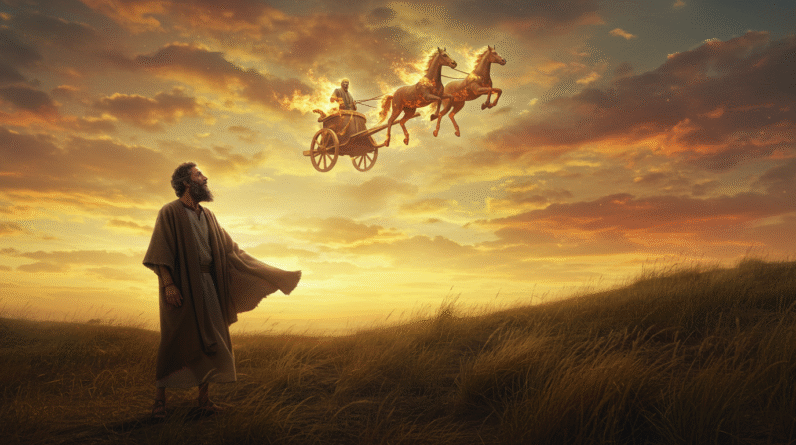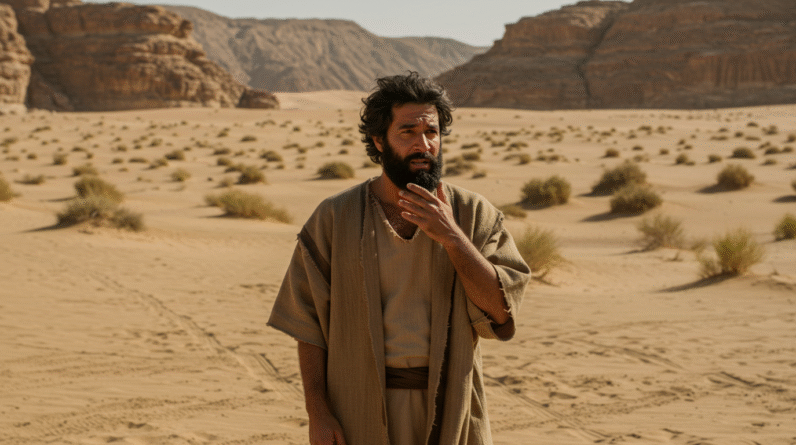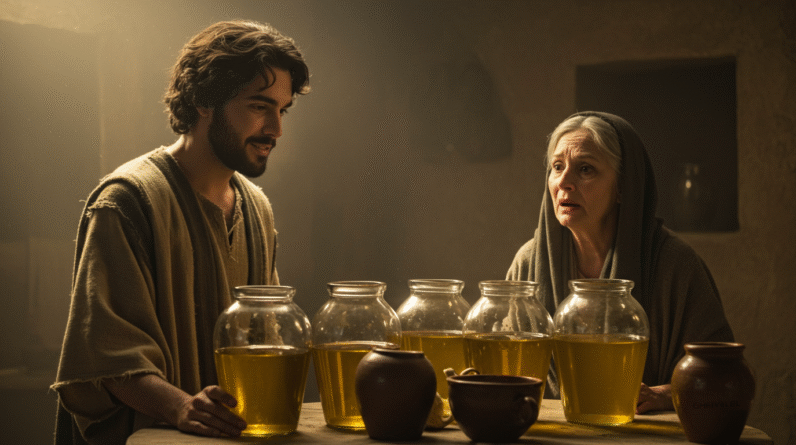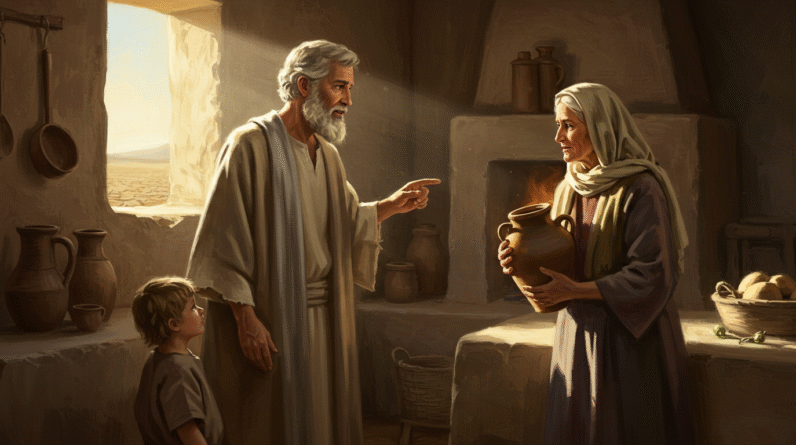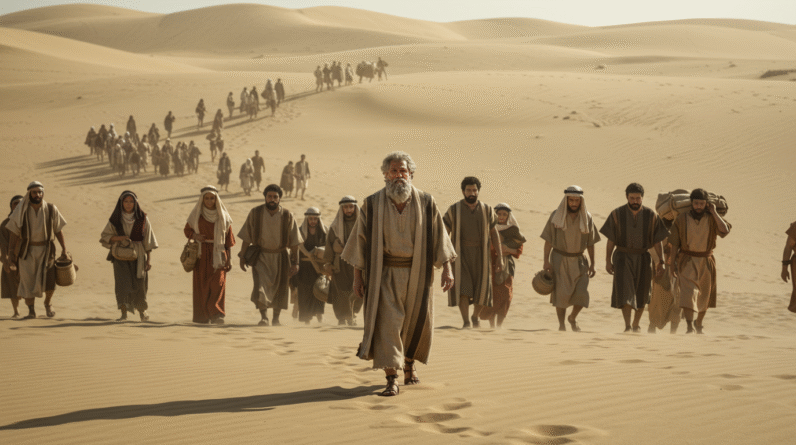Explore Zechariah’s profound reflections on returning to God, his visions, and his enduring impact on faith, promising renewal and hope in a spiritual journey.
Zechariah: Reflections on Returning to God

Introduction
In the treasure trove of the Old Testament, Zechariah stands as a compelling prophet whose teachings and visions offer profound reflections on returning to God. Zechariah’s story is both captivating and thought-provoking, merging visions, divine messages, and the promise of a better future. In biblical history, he is significant not only for calling the Israelites back to their faith but for casting a vision of a Messiah that has resonated through the ages. A key verse that underscores his mission is Zechariah 1:3, where God says, “Return to me, and I will return to you.” This verse encapsulates the core message of Zechariah’s prophetic calling—encouraging a return to spiritual faithfulness.
Historical Background
Zechariah lived during a transitional period in Jewish history, specifically the late sixth century BC after the Israelites returned from Babylonian exile. This era was marked by reconstruction and reinvigoration, as the people resumed their lives in Jerusalem. The political landscape was characterized by the remnants of the Persian Empire, which showed favor to the Jews by permitting their return and the rebuilding of the temple. Religious leadership fell upon figures like Joshua the high priest and Zerubbabel, a governor of the Davidic lineage. Zechariah’s contemporaries also included the prophet Haggai, and together they spurred the people to complete the temple rebuild and rejuvenate their faith.
God’s Call and Mission
Zechariah’s divine calling was marked by visions and angelic encounters, urging him to communicate God’s message to Israel. Through the mysterious yet enlightening visions, Zechariah received revelations about God’s intentions for Jerusalem, the temple, and the eventual coming of a Messianic king. Unlike other prophets who sometimes hesitated or resisted their call, Zechariah embraced his mission with vigor and purpose. His primary message was clear: God was inviting His people to return to Him wholeheartedly, promising restoration and blessing upon their repentance. This theme is central to understanding Zechariah’s prophetic mission.
Key Events and Prophecies
Zechariah’s ministry is illuminated by several pivotal events and prophecies. A notable aspect of his prophetic work includes eight visionary experiences, each symbolizing different aspects of God’s plan for Israel’s restoration and protection. Among these, the vision of the man among the myrtle trees (Zechariah 1:8-17) depicts God’s return to Jerusalem with compassion, a reassurance of divine presence amidst foreign domination. Another key prophecy is found in Zechariah 9:9, which foretells the coming of a humble king riding on a donkey, widely interpreted by Christians as an anticipation of Jesus Christ’s entry into Jerusalem. These events not only provided hope but also a template for spiritual and moral renewal.
Challenges and Opposition
Like many prophets before him, Zechariah encountered challenges as he delivered God’s message. While direct opposition isn’t as dramatically recorded in his prophetic book as with other prophets, it is implied that complacency and spiritual apathy among the people were significant hurdles. Zechariah’s appeals for repentance suggest a community weary from exile and hesitant to embrace full reform. Nonetheless, he delivered his visions with hope, reminding the people that even personal and communal struggles are opportunities for renewal. The historical and spiritual inertia he addressed reflects the timeless challenge of renewing one’s faith amidst life’s pressures.
Legacy and Impact
The legacy of Zechariah resonates throughout the Bible and theological discourse. His vivid imagery and hopeful prophecies sustained the Jewish community in their religious observances and anticipations. In the Christian tradition, the symbolic references to a coming king are heralded as a messianic foreshadowing of Jesus Christ, influencing New Testament theology. Zechariah’s visions of prosperity and peace offer a vision that transcends his time, inviting believers to imagine a divine future marked by blessing and justice. His role in urging a return to God’s path and anticipating a messianic age leaves an indelible imprint on both Jewish and Christian beliefs.
Lessons from Zechariah
From the life and message of Zechariah, several profound spiritual lessons are gleaned. First, we learn the significance of returning to God with a full heart, as genuine repentance ushers in restoration and blessing. Zechariah’s visions illustrate the truth that even amidst uncertainty and the mundane, a larger divine narrative is unfolding. His prophetic insights teach us the hope and anticipation for future redemption, urging believers to hold steadfast in faith. Furthermore, Zechariah’s message is timeless—urging the cultivation of a relationship with God that transcends ritual to embody genuine transformation and renewal.
Conclusion
Zechariah’s prophetic journey serves as a reminder of the power of faith and the promise of renewal. His teachings challenge us to reflect on our spiritual journey and the calling to return to God with sincerity and commitment. As with Zechariah, we are called to look beyond the immediate and embrace the grand narrative of redemption and hope that God offers to each believer. Are you ready to respond to this call and embark on a journey of renewal and faithfulness?
Acknowledgment: All Bible verses referenced in this article were accessed via Bible Gateway (or Bible Hub)



